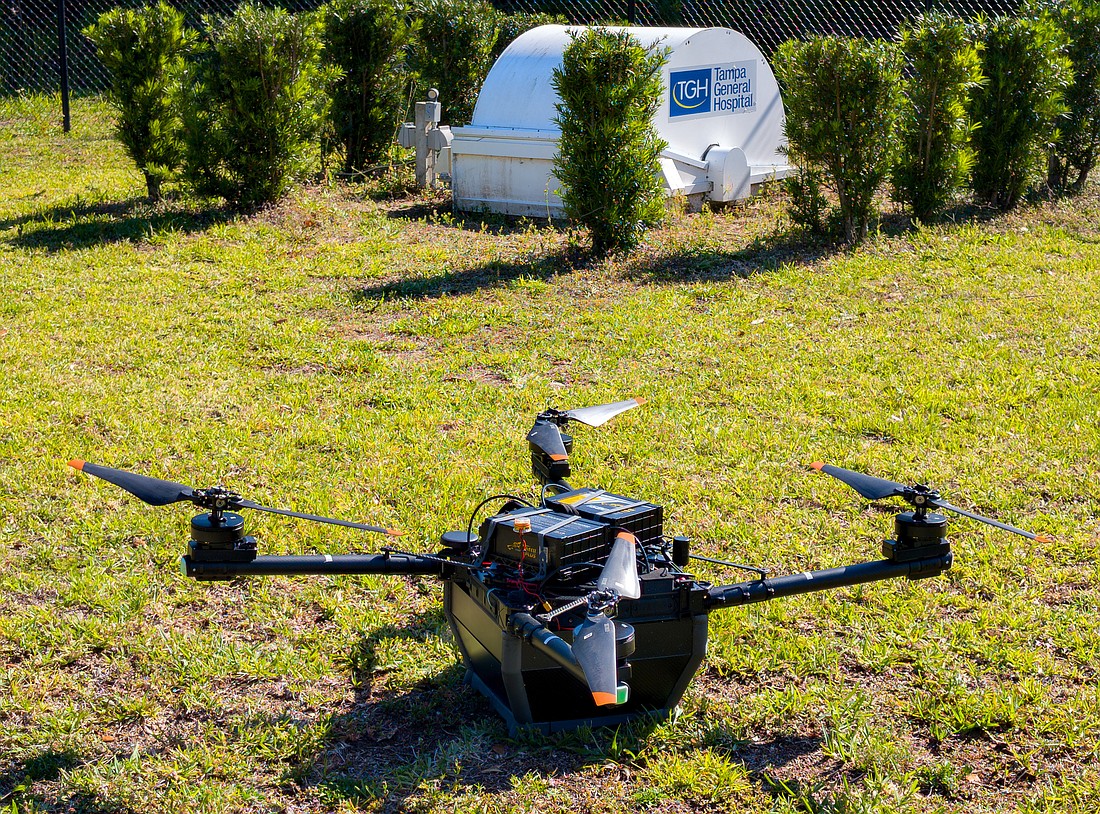- December 15, 2025
-
-
Loading

Loading

Soon, 911 callers in Manatee County may get a drone responding to their call for help — in addition to an ambulance.
The futuristic-sounding response is part of a test program that's taken multiple organizations multiple years to put together. The goal: use cutting-edge drone and data technology to help people suffering from a heart attack or a drug overdose get the help they need much more quickly.
“This first-in-the-nation-program can effectively save lives by responding to health-related emergencies faster than ever before," John Couris, CEO of Tampa General Hospital, which is sponsoring the drone program, says in a statement.